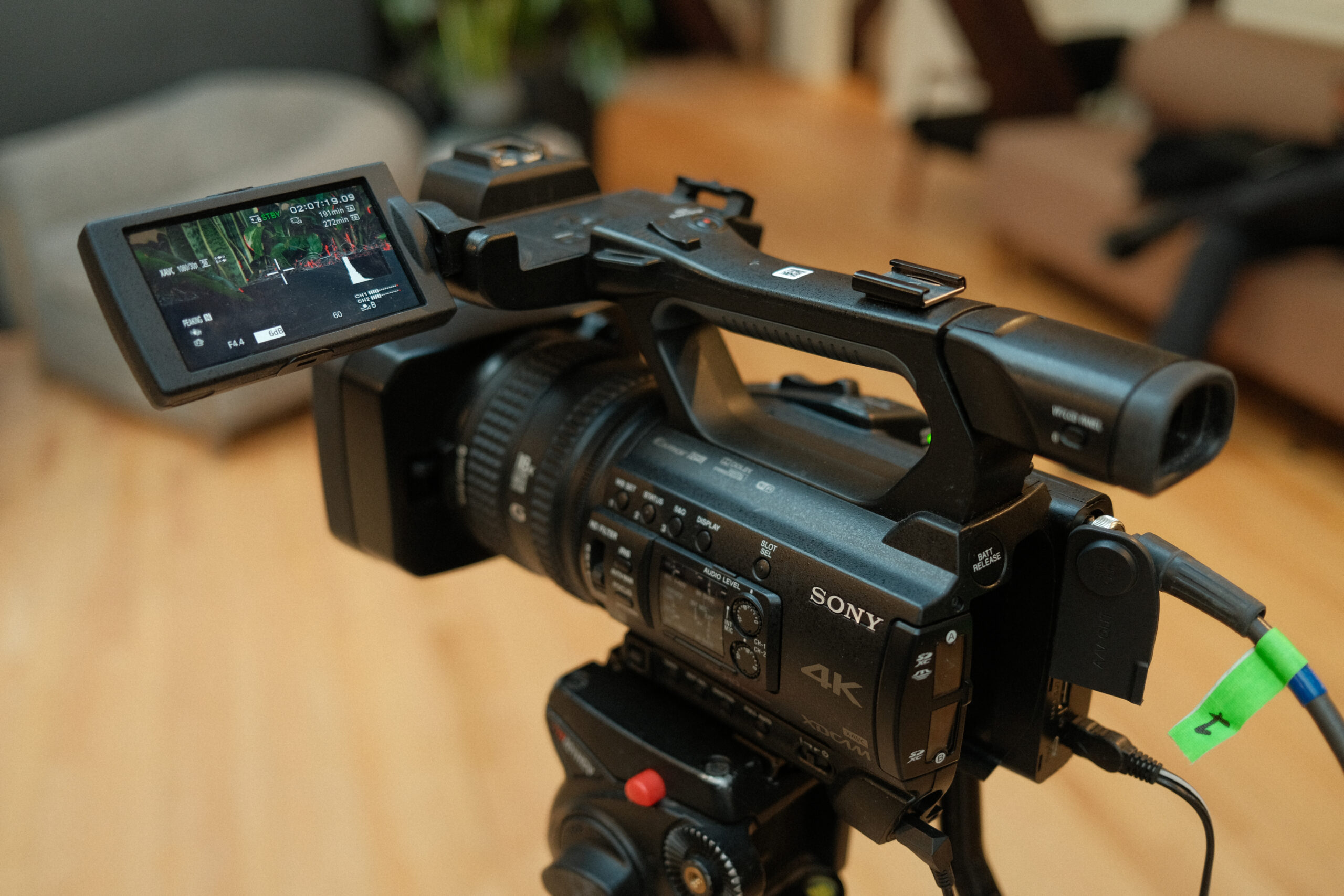


Webinars are powerful tools for marketers and enterprises, but their effectiveness hinges on audience engagement. It’s what separates a forgettable presentation from an impactful one. Enter the multi-camera setup. By using multiple cameras in webinars, you can create an immersive, dynamic experience that captivates viewers.
Think of it as a conversation, not a monologue. A multi-camera setup allows you to change perspectives, zoom in on important details, and create a sense of movement that keeps audiences engaged. Gone are the days of static, single-camera presentations. Today’s webinars need to be as captivating as possible, and the multi-camera setup is your ticket to a more engaging experience.
Why should you invest in a multi-camera setup for your webinars? The answer lies in three key benefits:
Static presentations are dull. They fail to capture attention. Multiple cameras add life to your webinars. They enable you to switch between angles, zoom in on details, and create a sense of movement. As a result, your content becomes more engaging and dynamic, making it easier for viewers to stay focused and interested.
Imagine watching a movie from a single camera angle. Boring, right? The same principle applies to webinars. Multiple cameras provide a richer, more immersive viewing experience. They allow you to showcase different aspects of your content, and give your audience a better understanding of the topic at hand. Plus, it’s far more enjoyable to watch.
First impressions matter. A multi-camera setup elevates the quality of your webinars, demonstrating your commitment to delivering top-notch content. Viewers will appreciate the effort and associate your brand with professionalism and expertise. And when your brand is perceived as a leader, people listen.
In summary, multiple cameras in webinars can transform your presentations into engaging, immersive, and polished presentations. It’s a small investment with a big payoff.
Ready to reap the benefits of multi-camera webinars? Great! Let’s dive into the essentials of setting up your multiple cameras:
A successful multi-camera setup starts with the right gear. Consider these key components:
Choose cameras that meet your needs and budget. Options include DSLR and mirrorless cameras, camcorders, and even smartphones. Look for features like good low-light performance, compatibility with your streaming platform, and clean HDMI output.
Stable, adjustable tripods or mounts are crucial. They ensure smooth, steady shots and allow you to change angles easily. Invest in quality gear that can support your cameras and adapt to different shooting scenarios.
Don’t forget the sound! Clear audio is essential for an engaging webinar. Use high-quality microphones and consider an audio mixer for precise control over sound levels.
Visualize the layout of your presentation space. Determine the optimal camera positions for capturing different angles, close-ups, and wide shots. Factor in lighting conditions and potential obstructions. Rehearse your presentation with your cameras in place to fine-tune the setup.
Finally, connect your cameras to your webinar platform. Use HDMI or SDI cables to connect cameras to your computer or a video switcher. Ensure your streaming software recognizes the cameras and allows you to switch between them seamlessly during the webinar.
With the right equipment, thoughtful planning, and proper connections, you’ll be on your way to delivering engaging, multi-camera webinars that captivate your audience.
Once your multi-camera setup is in place, the next step is mastering the art of seamless switching. Here are three methods to achieve smooth transitions between cameras:
Prefer hands-on control? A hardware video switcher allows you to manually switch between cameras with the press of a button. This gives you full control over camera transitions and ensures perfectly timed cuts. Be sure to practice beforehand to avoid awkward or abrupt switches during your webinar.
Software-based solutions offer another option for camera switching. Programs like OBS Studio or Wirecast provide digital control over camera transitions, allowing you to change angles with a click of your mouse. These tools often include additional features like customizable transitions, on-screen graphics, and more.
Whether you opt for AI-driven automation, manual control with a video switcher, or digital control through software, the key is to ensure smooth transitions that keep your audience engaged throughout your webinar.
Now that you’re equipped with the know-how for multi-camera setups and seamless switching, let’s explore some tips to elevate your webinars even further:
Smooth transitions are key. Abrupt or jarring cuts can disrupt the flow of your webinar and disengage viewers. Practice switching between cameras, refine your timing, and use appropriate transition effects to maintain a polished and professional presentation.
Visual aids enhance your message. On-screen graphics, titles, and lower thirds add context and emphasize key points. Use them to introduce new sections, display important data, or highlight speaker credentials. Just remember to keep them clean, simple, and on-brand.
Don’t overlook audio. Ensure your audio levels are consistent across all camera angles, and synchronize your sound with your visuals. Nothing is more disorienting than mismatched audio and video. Use an audio mixer or software tools to fine-tune your sound and keep your audience immersed in your content.
By focusing on smooth transitions, compelling visuals, and well-synchronized audio, your multi-camera webinars will be engaging, professional, and memorable.
Ready to take your multi-camera webinars to the next level? Utilize cutting-edge features designed to help you create engaging, dynamic presentations:
Embrace automation. Some platforms offer AI-driven camera switching technology that analyzes your content in real-time and selects the most relevant camera angle. This hands-off approach ensures your webinar remains engaging and dynamic, without the need for manual intervention.
Streamline your production process. Utilize creative workflows to help you plan, execute, and analyze your webinars with ease. From scripting and storyboarding to analytics and optimization, you’ll have the tools you need to create high-impact content that resonates with your audience.
Choose a platform that easily integrates your multi-camera setup with popular webinar platforms, ensuring a seamless experience for both you and your viewers. With compatibility, you can focus on delivering engaging content without worrying about technical hiccups.
By leveraging innovative features, you’ll be well-equipped to deliver captivating, professional multi-camera webinars that keep your audience coming back for more.
In today’s fast-paced world, capturing your audience’s attention is more important than ever. Multi-camera webinars offer a dynamic, engaging, and professional solution to achieve this goal. With multiple cameras, you can create immersive presentations that showcase your content from different angles, improving the overall experience for your viewers.
From selecting the right equipment and setting up your cameras, to mastering seamless transitions and leveraging innovative solutions like Brandlive’s AI-driven camera switching, you have the tools and techniques needed to elevate your webinars and captivate your audience.
Are you ready to harness the power of multi-camera webinars and enhance audience engagement? Explore Brandlive’s cutting-edge features and solutions to propel your webinars into the future. The next big thing in content hosting and production awaits.
Navigation



We talk a lot about the webinar around here. VP of Product, Will Clancy joins us to talk about other shows and successful events happening on Brandlive.